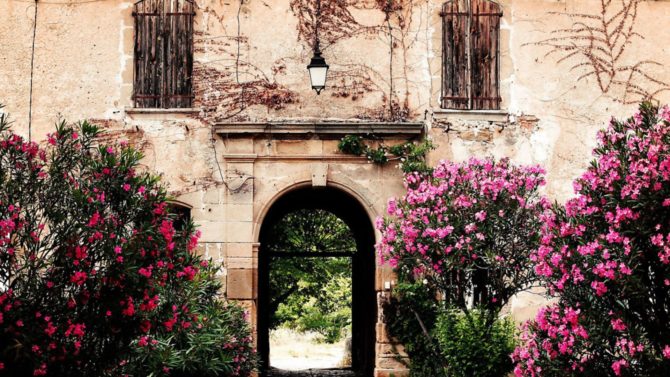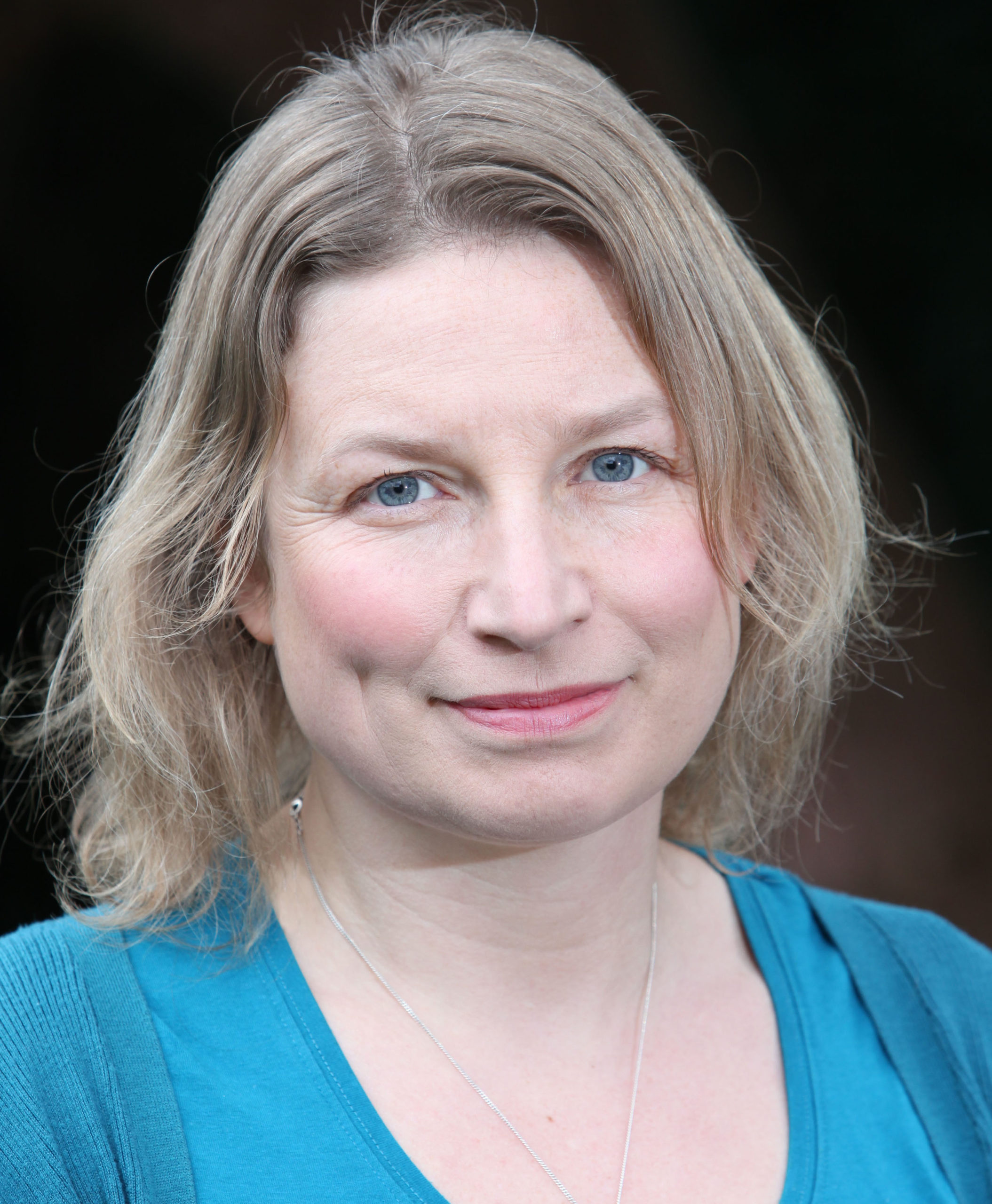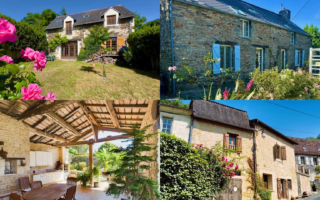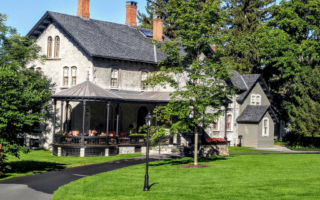Buying a French property: 8 common myths to ignore


Notaire fees are 10%, you should do as many viewings as possible in a day and buying privately will save you money… These are just a few of the common misconceptions about buying a French property
Myth 1: the deposit is 10% and the notaire’s fees are 10%
Mark Sayers, Artaxa real estate agency: “There is no fixed amount for a deposit and in my experience a 5% deposit is much more common. There’s actually no legal requirement for the buyer to pay a deposit at all and if the vendor is in agreement it can be waived altogether. My advice if the deposit is to be waived, however, is to make sure that the compromis de vente contains a penalty clause stipulating that if the buyer or seller were to withdraw without good reason, they would owe the other party a percentage of the sale price. In the case of a penalty clause, 10% is not uncommon.
“When it comes to the notaire’s fees, it’s a common misconception that the notaire receives all of these fees. The term refers to the amount that the notaire receives, together with the taxes that he or she collects on behalf of the government. The notaire actually receives around 1.5% of the sale price. The total fees are calculated on a sliding scale – the higher the value of the house, the lower the percentage of the fees and in reality any purchase above around €60,000 is likely to attract notaire’s fees of less than 10%.”
Myth 2: the notaire acts on behalf of both parties
Matthew Cameron, Ashtons Legal: “Actually, a notaire acts on behalf of the state and is not obliged – indeed is not allowed – to advise either the seller or the buyer. If a problem arises during the purchase process, a notaire is obliged to stop and invite the parties to go away and settle their differences; they will pull the shutters down on the transaction until the problem has been resolved.
“A notaire will assess and explain what is in a contract, but it’s not necessarily their job to advise on issues that might perhaps be better included in the contract that aren’t at the moment – things that might be in the best interest of one or both parties. A solicitor’s job, in contrast, is to say ‘there should be an X or Y in the contract and you could probably negotiate a Z’, which is why solicitors and notaires often work together.
“My job is to go through the documentation and check what’s missing as well as what’s there, and check my client’s understanding on rights across land, for example, or on inheritance tax and succession planning.”
_____________________________________________________________________________
Don’t miss
I wish I’d known that before buying my French property
What are the differences between buying a property in the UK and France?
_____________________________________________________________________________
Myth 3: we want lots of land and no neighbours
Chris Slade, A House in Brittany: “Many people get the hots for land in France and tell us they want at least an acre, perhaps comparing it to what they can get in the UK. But unless you’re planning a commercial activity, don’t take on more than you can handle, especially if you are not there to look after it. If yours is just to be a holiday home then the last thing you want to do for the first few days or more of each visit is to ‘tame the garden’… again!
“It’s easy to imagine the freedom of wide open space all around and to think that neighbours might create problems for you or that language will be a barrier, but we have found our neighbours greatly add to the experience. They give us eggs, we bake them bread and we’ve become good friends.”
Myth 4: time is short so let’s book lots of viewings with different agents
Edward Landau, Agence Le Bonheur: “It’s easy to overlook the best properties. Some houses just photograph beautifully; others don’t. Some look like good value on paper, but the setting might not be right for you.
“When we analysed our sales record, 70% of the properties we sold the year before last had not been selected by clients in their original searches. Our success rate when a client comes to see a single property with us is 0.7%; yet if they spend a day with us we sell them a property in 28% of cases. That’s a huge increase which is clearly in our interest, but it’s in your interest too. I would rather spend a day with you and learn what your requirements really are. So I would advise people to cherry-pick estate agents rather than properties.”
Myth 5: life is laid back in France so it won’t matter if we’re late for viewings
Charles Smallwood, Agence L’Union: “Many clients turn up late – sometimes 30 minutes or even an hour. It can create real problems as sometimes owners and keyholders need to travel quite a distance to open up properties. This issue is exacerbated when UK buyers believe they can be shown five or six properties in a day, which is very rare. The maximum is usually four depending on their proximity to each other. If you’re dashing around trying to see several properties in a day with different agents, you’ll probably run behind schedule and won’t take it all in. So be on time! Best of all, if possible, rest content in your region of choice for at least two days and I firmly believe the agent will find you the home of your dreams.”
_____________________________________________________________________________
Don’t miss
What is the role of a notaire?
Common mistakes made by French property buyers that you should avoid
_____________________________________________________________________________
Myth 6: internet connections and speeds will be poor in rural France
Bob Elliott, UK Telecom: “France Telecom/Orange are about halfway through a big investment in the national network and this is resulting in faster speeds in larger communities. However there are lots of upgrades in local exchanges that are allowing customers to have their broadband speed upgraded so even those who currently have a slow speed may benefit from the investment. It’s easy to find out the indicative broadband speeds in your area of choice by visiting the website observatoire.francethd.fr and, once you’ve found a property, to find out what broadband speed you will get there at degrouptest.com. Visit quechoisir.org/carteinteractive-reseau-mobile-n21247 to compare the speeds of different mobile providers in your area.”
Myth 7: buying privately will save us money
Charles Miller, Charente Immobilier: “People often think buying privately will save money on agency fees, but this misses the point of what an agency actually does to earn its fees. It is very easy to get lost – with substantial financial repercussions – in an alien conveyancing system. Without an agency liaising between both parties and the notaire(s), a significant number of private sales fall through. Agencies also usually assist with all sorts of other issues which would be totally out of the remit of a UK agent, such as finance, planning permissions, utility contracts, insurance and so on.
“More than this, it is perfectly possible that an agency will be able to negotiate a much better deal. One client we worked with decided to buy privately a particular house that we had on our portfolio. If they had come through us they would have been able to shave a further €30,000 off the price – equivalent to both the agency fee and the notaire fee.”
Myth 8: booking a removal company is the final job to do
Gary Burke, Burke Brothers overseas removals and shipping: “You can never be too prepared when booking a removal company. We would recommend contacting a removal company between four and 12 weeks prior to your move if you can. Giving more notice on your upcoming move is never a bad thing, and getting a professional quotation done early can help you budget for your move.”
Like this? You might enjoy:
The legal process of buying a French property
Share to: Facebook Twitter LinkedIn Email


